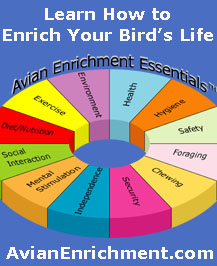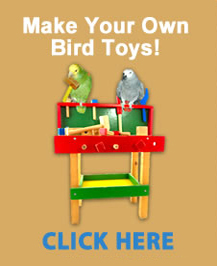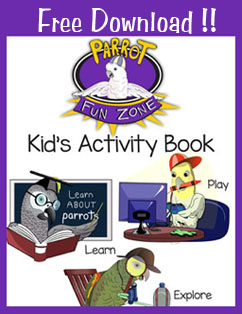Security
|
For a living being, security is the condition of feeling safe and protected against danger. We all have the innate desire to feel safe and secure in our environment. Not feeling safe can negatively impact your birds health and mental well-being. Birds that live under stressful conditions often start to exhibit undesireable behaviors like screaming, biting and feather picking. What would cause my bird to feel unsafe? Parrots are prey animals which means that predators in the wild, such as hawks or snakes, are always looking to make them into a meal. This one factor influences parrot's behavior in captivity more than any other. Have you ever noticed how frightened parrots get with sudden load noises or movements from above or behind? Ever make the mistake of letting a helium balloon float by your bird's cage? Even the snakelike vacuum cleaner cord/hose can evoke a negative reaction. Our parrots are instinctually hardwired to be on alert for danger from predators 24/7. Because of this, it is up to us to realize how instinctively vulnerable our birds feel and to help them feel as safe as possible. How can I help my bird feel secure? Fortunately, there are many simple things that we can do to help our birds live with less stress while living in our homes. One of the keys to understanding your bird is to carefully observe their body language so you can find out what situations may cause a fearful reaction. This knowledge will help you to make adjustments in your household to avoid undue stress in your bird. It is important to note that not all birds react the same way to a specific situation. For example, some may be terrified of the vacuum cleaner but others are absolutely delighted by the noise of the vacuum. To reduce the potential for stress in your bird, here are some things to consider:
|
Related Articles
 Environment
Environment
 Social Time
Social Time







































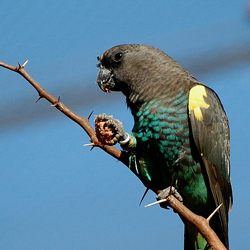



























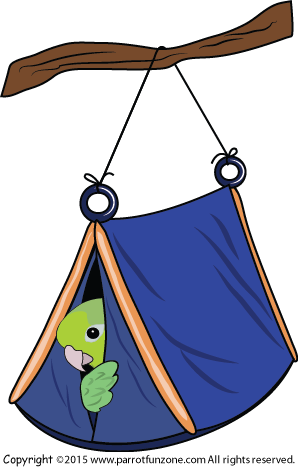 What is Security?
What is Security?

